Australian filmmaker Leigh Whannell is building his own cinematic universe, but don’t expect to see a string of A-list actors headline his burgeoning blockbuster filmography. Instead, he’s opting to bring a ‘who’s who’ of Hollywood horror legends to life.
Despite it being called a fairly ‘safe’ film, Aussie director Leigh Whannell’s Wolf Man ended up being a rather divisive horror flick. The follow-up to his 2020 hit The Invisible Man landed with a heavy thud when it launched in cinemas in late 2024. Critics didn’t exactly love it and user reviews have been scattered, to say the least. I came away fairly innately positive when I saw the film back in January, and while my feelings toward it haven’t soured over time, I can understand some of the criticisms that have emerged.
Set in Oregon, but shot on the South Island of New Zealand, Wolf Man takes place almost entirely in one location – a derelict, dilapidated farmhouse surrounded entirely by heavy woodland. We see fairly early in the film that something deadly stalks the woods (a wolf man, in case you didn’t know), but not a lot of information on the whys, whats, or hows.
That’s by design, as it turns out. I was given the opportunity to chat with Whannell ahead of the film’s launch late last year, and chatted about the movie’s inspiration, how COVID-19 seeped into the script, and what horror creature he’d want to take on next.
This interview has been edited and arranged for clarity.
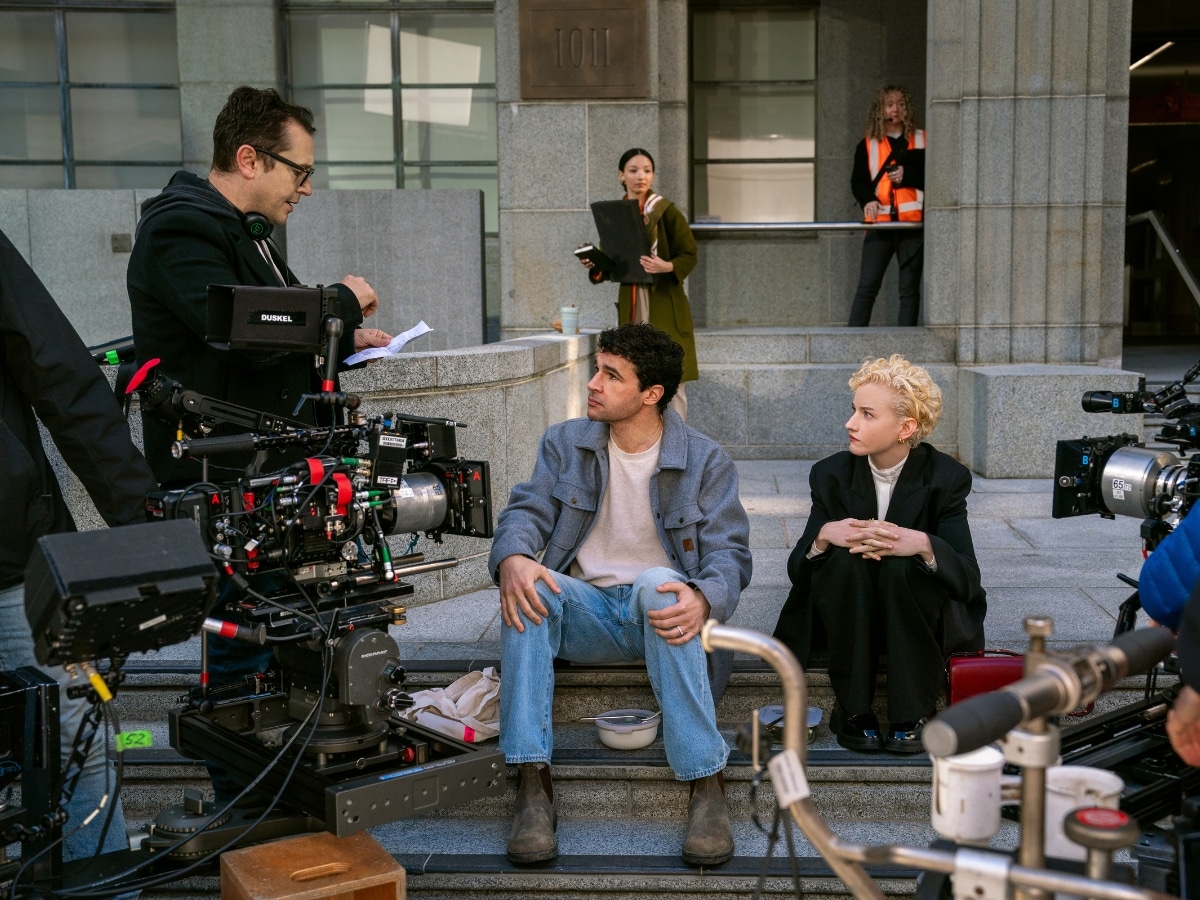
MoM: I thought it was really interesting that the movie is quite small scale. It largely takes place over one night, and it’s focused on one family, one event. Can you talk through the thinking behind keeping the whole thing so intimate?
Whannell: It just seemed to be what the film wanted. The first draft was written during the COVID-19 lockdown, and, as you know, that was a very unsettling time. It was very discombobulating to spend all day indoors, and at the time it really felt like it was going to go on forever. I couldn’t see the end of it, after three months of being in the house I was asking ‘is this just it, for the rest of time?’
And so my wife , who I co-wrote the film with, and I put all our anxieties and frustrations about that time into the script and it felt right for it to be isolated. I’d walk the dog through my neighbourhood and it’d be so desolate and eerie.
It was like 28 Days Later, and that vibe was just seeping into the script. So, to me, it just felt right for it to be about a family that’s isolated.
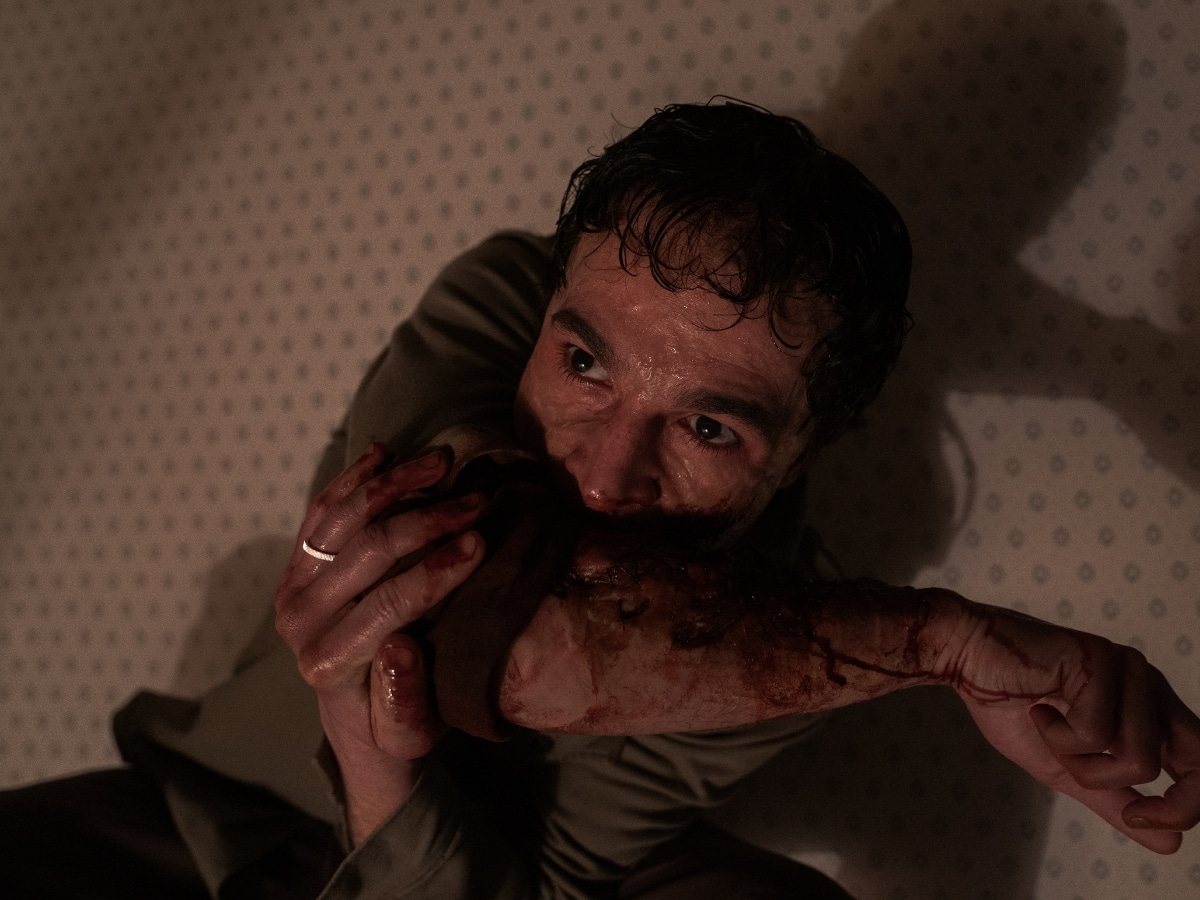
MOM: It’s funny that you mention 28 Days Later. I thought the movie came off a bit like a twist on a zombie film. This is not what you’d normally think of with a werewolf story, which tends to be a bit more supernatural. Can you talk me through the process of bringing a more grounded take on the werewolf?
Whannell: When I took the job and decided I was going to do this, I was thinking about what my way in was going to be, and that felt interesting to me.
It’s kind of my style; it’s what I did with The Invisible Man; I wanted to see if I could make the idea of invisibility not seem outlandish but seem like something that could happen. Now we’re at the point with stuff like self-driving cars and such that I think that’s probably around the corner, these science-fiction concepts can suddenly just appear in your life, so with [Wolf Man] I was thinking, ‘okay, what’s my one degree of reality’, and I felt the disease was a good .
It felt like the right way to go because the story is about transformation, and the thing that spread into my head was the bodily transformation that someone who’s suffering from a degenerative illness – whether it’s multiple sclerosis or Parkinson’s disease, or nerve damage, or they’ve suffered a stroke – that seemed to mirror the werewolf transformation and so really drove the thinking behind it.
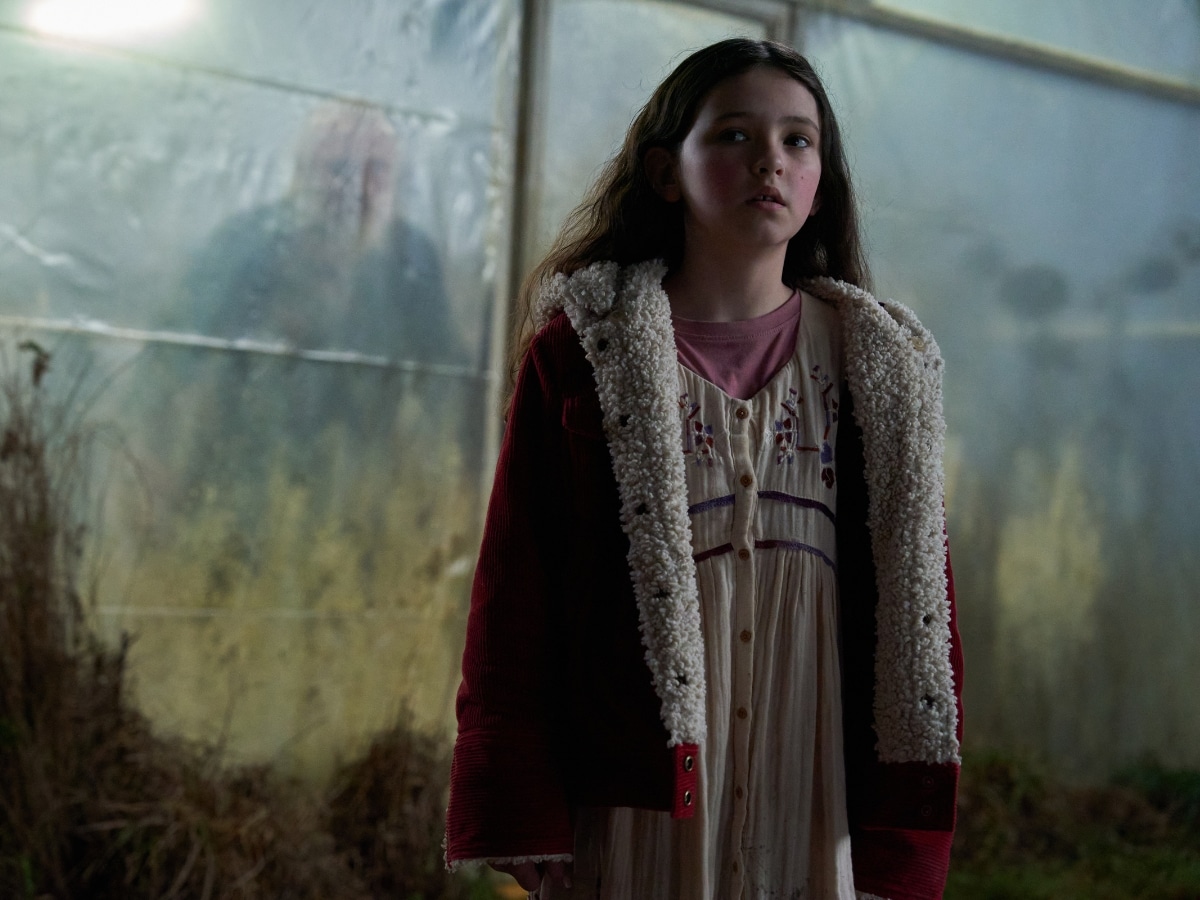
“You have to decide how much to give to the audience, but I find horror movies scarier when there is a lot left out.”
MOM: It does feel like quite a bit is left unanswered throughout the movie—we don’t really know where this infection came from or why a bunch of hunters live in this forest and aim to contain the threat. Did you want to infuse the movie with a bit of mystery there?
Whannell: Yeah, I did want a bit of mystery. You have to decide how much to give to the audience, but I find horror movies scarier when there is a lot left out. One of my favourite horror movies of all time, if not my favourite, is The Shining – another movie about a family of three in an isolated location, but there are so many unanswered questions in that film. And, to me, those unanswered questions have added to my love of that movie, and what I’ve taken from it. I’m always looking for hints when I watch that movie, and so I think it’s that type of thinking .
MOM: Were there any scenes in the film that stood out to you that you really love?
Whannell: There’s one scene involving a , where the main character is hearing something, and I really loved shooting that, and it really felt like we had something unique there. It’s part of what I was talking about earlier with the transformation being akin to an illness, and slowing it down rather than having it just take place in one big mic-drop of a scene, that jigsaw piece of that scene I was really excited about.
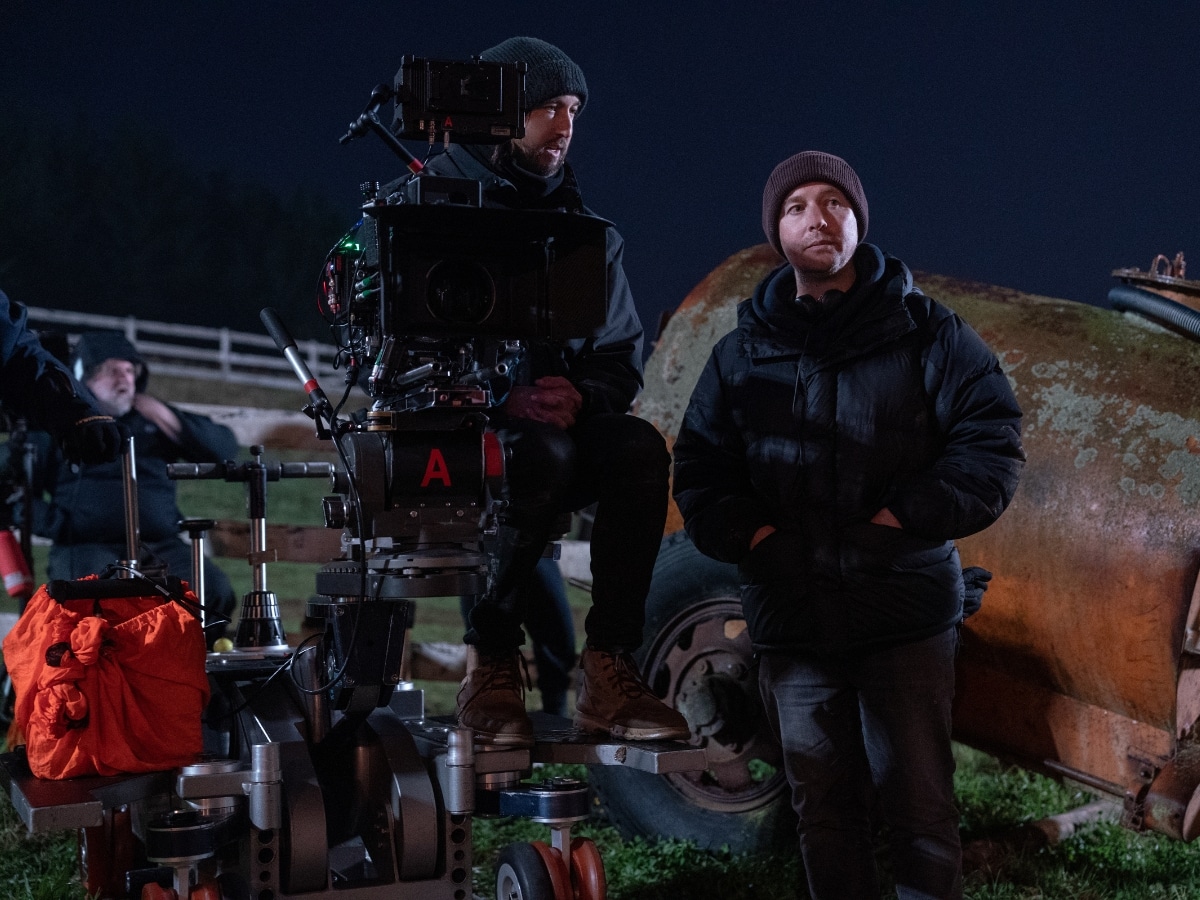
MOM: Is there any other classic creature feature you’d want to reinvent in this new way?
Whannell: Just as a film fan I’d love someone to do a modern version of Dr. Jekyll and Mr. Hyde, I think that’s such an interesting story, having the protagonist and the antagonist being the same person, but as far as creature features, I think, having grown up in the VHS era, I would love to do an alien film.
The thing I love about aliens, and extra-terrestrial species, is the room that you have. There are no rules.
You can literally do anything, because we don’t know . We humans have created that little green man mythology, but it’s totally owned by us. The last 20 minutes of 2001: A Space Odyssey is where I’d lean, because it’s like… whatever is out there is going to be beyond our comprehension, so that’s something that haunts me. [I’d love to] make a truly unique alien-life film.
Wolf Man is a modern adaptation of the classic horror story. Starring Julia Garner, Christopher Abbott, and Matilda Firth, the film brings a fresh psychological dimension to the horror genre. When father and family man Blake is attacked by an unseen animal, he shields his family in a farmhouse, however, as the night stretches on, Blake begins to behave strangely, transforming into something unrecognisable. Wolf Man was released in cinemas in January 2025 and distributed by Universal Pictures.
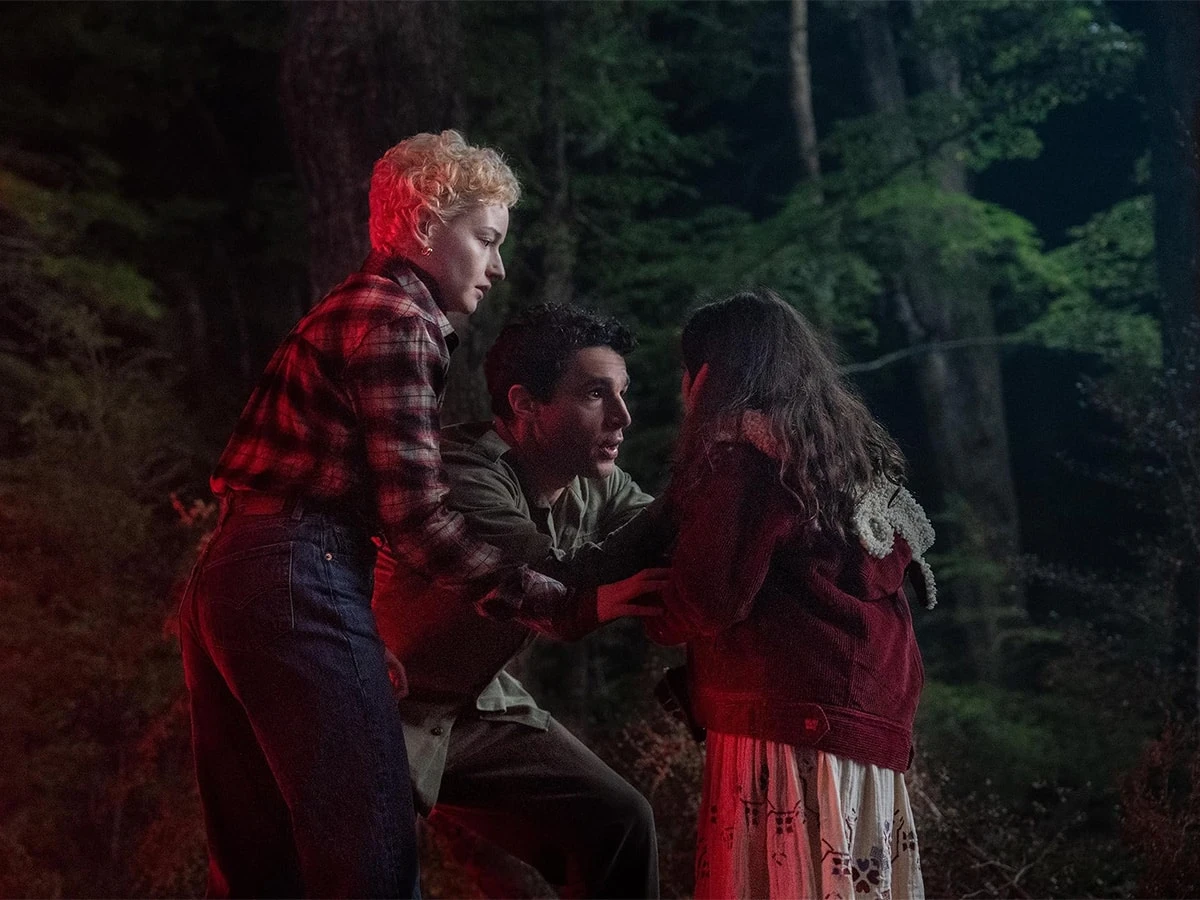

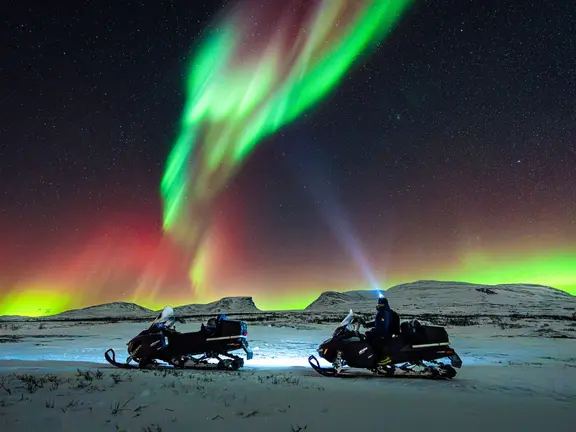



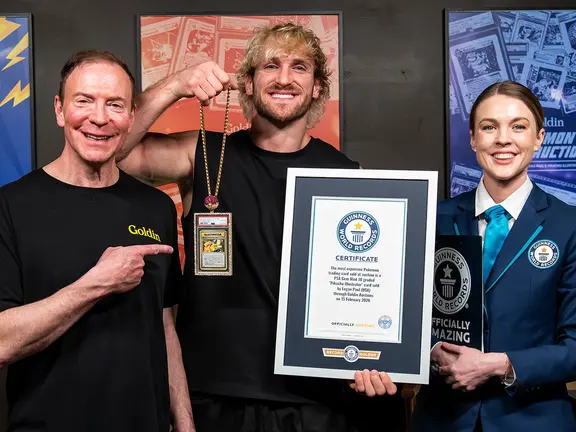





















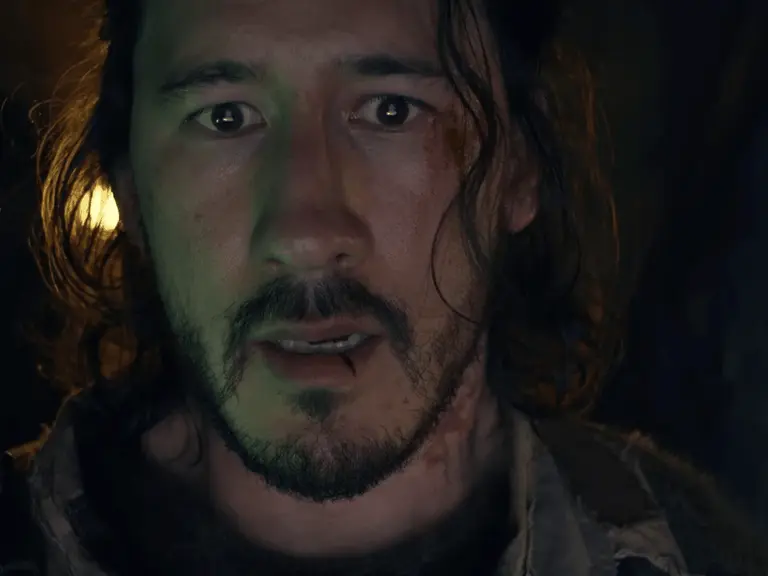

Comments
We love hearing from you. or to leave a comment.